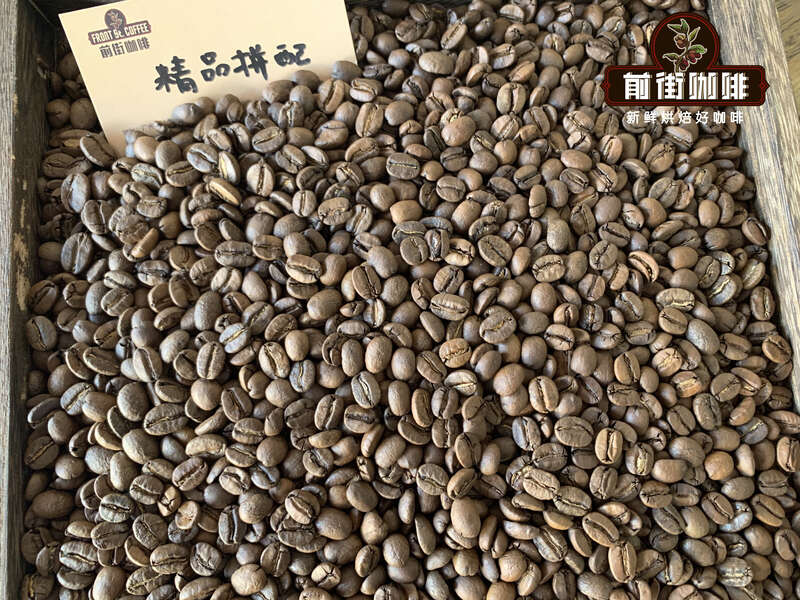Are both decaffeinated coffee and caffeine associated with health? how is coffee decaffeinated
Independent scientific evidence suggests that coffee, whether it contains caffeine or not, is associated with many unique health benefits, including longer life expectancy and a lower risk of multiple cancers and chronic diseases.
More than 90% of American coffee drinkers choose caffeinated coffee, but decaffeinated is a good choice for those who want to drink coffee taste and social relationships without caffeine energy boost. Fortunately, an accident in 1905 flooded a batch of coffee beans with sea water, washed away caffeine and promoted the development of modern decaffeinated methods.
How is coffee decaf?
Like regular coffee, decaffeinated coffee starts with unroasted green beans.
All four methods are safe, and once caffeine is removed (well, at least 97%), the beans are washed, boiled, and roasted at a temperature that evaporates all the liquid used for decaffeination.

How much caffeine is in decaffeinated coffee?
Decaf removes about 97% or more of caffeine from coffee beans. A typical cup of decaffeinated coffee contains about 2 mg of caffeine, while a typical cup of regular coffee contains about 95 mg of caffeine.
Is decaf coffee bad for you?
Like all coffee, decaffeinated coffee is safe to eat and can be part of a healthy diet.
If you want to know whether the decaffeinated process itself is safe, the answer is yes. All four methods are safe, and once caffeine is removed (well, at least 97%), coffee beans are washed, steamed and roasted, and the temperature evaporates the liquid used for decaffeination.
The United States Food and Drug Administration has set strict standards to ensure that any trace solvents used to remove caffeine are safe. FDA measures these marks in terms of "parts per million". After removing caffeine, the content of dichloromethane in coffee must not exceed 10/1000000, or 1/1000.
How much caffeine is too much?
Regulators and health authorities around the world have concluded that moderate consumption of caffeine can be part of a healthy diet for most adults-usually up to 400 milligrams a day, or about 4-5 cups of coffee. The guidelines may be different for people with certain diseases.
When you consider caffeine intake, note that caffeine exists not only in coffee, but also in other foods and beverages, so consider all potential sources. Everyone's body is different, so everyone should check the health advice of the authorities, listen to your body's response to caffeine, and consult your personal doctor if you have any questions.
Important Notice :
前街咖啡 FrontStreet Coffee has moved to new addredd:
FrontStreet Coffee Address: 315,Donghua East Road,GuangZhou
Tel:020 38364473
- Prev

What is the relationship between Katim Coffee and East Timorese Coffee? the origin of East Timor coffee beans
East Timor Coffee has a medium to full-bodied wine with a mellow taste, vibrant acidity and low profile. Occasional inconsistencies between harvesting and processing can lead to coffee defects, which can lead to mildew and / or hard quality. East Timor coffee plant variety-Robsta of HYBRIDO DE TIMOR interspecific hybrid (fruit coffee variety Robsta) and H of small seed coffee
- Next

Espresso uses high acidity coffee beans, okay? the main factors affecting the brewing of espresso
The coffee beans used to make espresso are usually Arabica beans (Coffea arabicavar. Arabica), but robusta coffee beans (Coffea arabica var.robusta) are also used in some espresso mixtures. Although robusta coffee beans are generally considered to be of lower quality than Arabica coffee beans, it is well known that robusta coffee beans contain coffee oil.
Related
- What brand of black coffee is the most authentic and delicious? what are the characteristics of the flavor of the authentic Rose Summer Black Coffee?
- Introduction to the principle and characteristics of the correct use of mocha pot A detailed course of mocha pot brewing coffee is described in five steps.
- Which is better, decaf or regular coffee? how is decaf made?
- How much is a bag of four cat coffee?
- How about four Cat Coffee or Nestle Coffee? why is it a cheap scam?
- Which is better, Yunnan four Cats Coffee or Nestle Coffee? How about cat coffee? is it a fake scam? why is it so cheap?
- How about Cat Coffee? what grade is a hoax? which instant coffee tastes better, four Cat Coffee, Nestle Coffee or G7 coffee?
- Process flow chart of coffee making-Starbucks coffee making process what coffee tastes good at Starbucks
- The top ten best coffee beans in the world Rose summer coffee or Tanzanian coffee tastes good
- Yunnan four cat coffee is good to drink?_four cat coffee is a big brand? four cat blue mountain coffee is fake?

